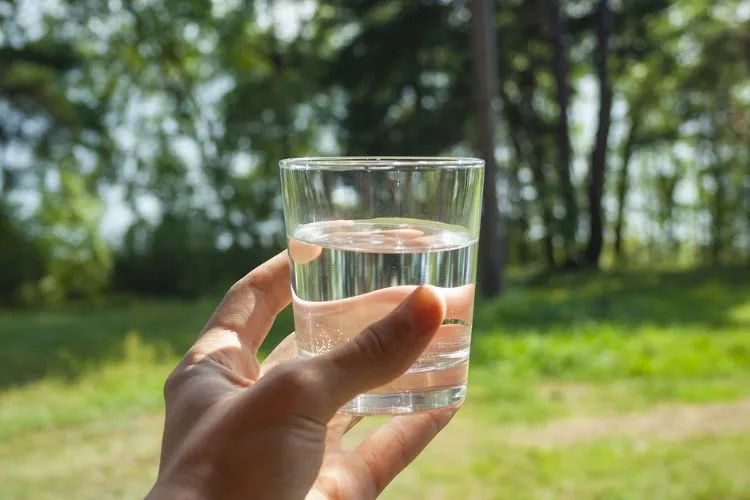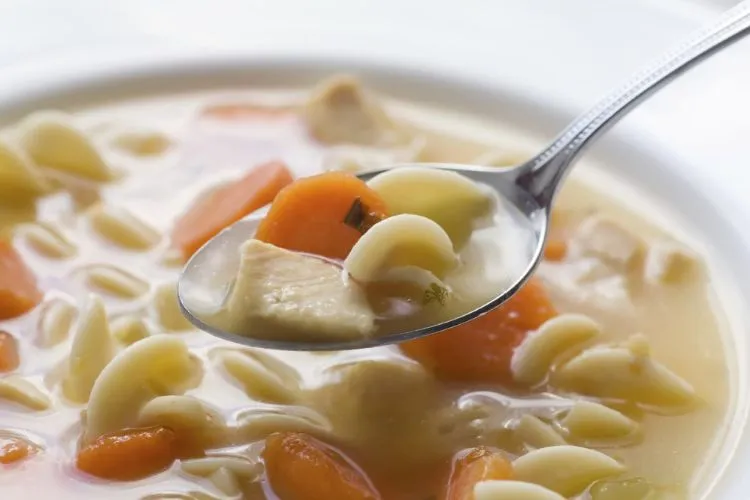Distilled water, long known for its purity and popular usage in various industries, often stirs curiosity, leading some to ask, “Can You Drink Distilled Water?”
In this article, we delve into what distilled water is, its implications for health, and the ongoing debate surrounding its ingestion.

💦 Understanding Distilled Water
Distilled water is the result of an age-old process known as distillation. This involves boiling water until it evaporates, then condensing the steam back into liquid form. The heat kills bacteria and other microorganisms, while solid impurities remain behind in the original vessel. The result?
Water in its purest form—free of contaminants, bacteria, and minerals. This high degree of purity makes distilled water ideal for specialized applications such as laboratories, medical facilities, automotive cooling systems, and even in the food and beverage industry.
💦 Can You Drink Distilled Water? The Safety of Drinking Distilled Water
Distilled water is safe to drink. The World Health Organization (WHO) and numerous health authorities worldwide certify this fact.
The distillation process removes harmful contaminants, including potential pathogens, making distilled water one of the most sterile forms available.

Pros of Drinking Distilled Water
Distilled water’s major draw is its lack of impurities. It’s entirely free of chemicals, contaminants, and microscopic life forms that could cause illness. Given the purity, distilled water also eliminates the risk of water-borne diseases, providing a safe hydration option when clean water sources are not available.
Cons of Drinking Distilled Water
Despite its safety, distilled water also has drawbacks. It’s devoid of minerals like calcium and magnesium, which our bodies need. Health experts suggest these elements, which natural water sources possess, contribute to our overall mineral intake. A long-term reliance on distilled water could potentially result in mineral deficiency.
Some people also find the taste of distilled water to be flat or insipid. It’s because the minerals that often give water its unique taste profiles are absent.
Balanced Perspective
While distilled water lacks minerals, it’s essential to remember that a varied diet provides most of our nutritional needs. If you’re consuming a balanced diet, rich in fruits, vegetables, grains, and other nutrient sources, you’re likely to get the minerals your body needs.
There are also specific situations where drinking distilled water is the safest option. For instance, if you’re in an area with a high risk of water contamination, distilled water can ensure you stay hydrated without the risk of consuming harmful pathogens.
💦 How to Safely Incorporate Distilled Water into Your Diet
If you decide to use distilled water in your routine, ensure your diet compensates for the missing minerals. You could consider alternating between distilled and mineral-rich water sources, like natural spring water or fortifying your water with trace mineral drops.

Practical Considerations
Before committing to drink distilled water, consider the practical aspects. Distilled water may cost more than tap water or other bottled water due to the process involved in its production.
Availability may pose another issue. While some grocery stores sell distilled water, finding it is not as straightforward as regular bottled water. You might also consider investing in a home water distiller, but remember this could impact your energy bills, given the electricity consumed in the distillation process.
Finally, we must ponder over the ecological impact. Distillation uses more energy than other purification methods. Unless we are using an energy-efficient distiller, the carbon footprint is higher.
Environmental Considerations
The process of distilling water at home, while providing a source of pure water, raises environmental concerns, primarily due to energy consumption.
Water distillation requires significant amounts of energy to boil and condense water, contributing to a household’s carbon footprint. This increased energy use not only affects the environment through higher emissions but also reflects on energy bills.
However, there are methods to mitigate these environmental impacts. Opting for energy-efficient distillers is a crucial first step. These models are designed to use less electricity for the same amount of water, making the process more sustainable.
Additionally, integrating renewable energy sources, such as solar panels, to power the distillation unit can significantly reduce the environmental impact. Not only does this approach harness a clean energy source, but it also aligns with sustainable living practices by minimizing reliance on fossil fuels.
Adopting these practices not only contributes to environmental conservation but also elevates the act of producing distilled water at home into a more eco-conscious choice.
By considering the energy footprint of water distillation and employing more sustainable practices, individuals can enjoy the benefits of pure water with a reduced environmental impact.
In discussing the nuances of distilled water, it’s essential to understand how the water we consume is processed and treated for various purposes. Water softening is a common treatment process for household and industrial water supplies. While exploring the implications of ingesting distilled water, a relevant question arises: What exactly is the role of water softening in preparing our water, and how does it compare to distillation?
For those intrigued by the broader context of water purity and treatment methods, diving into the topic of “What is a Water Softener?” offers a comprehensive view. This introduces another layer to the conversation, allowing us to compare and contrast the different methods and their outcomes on the water we use and consume daily.
💦 Frequently Asked Questions (FAQs)
Is distilled water the same as purified water?
No, distilled water is a type of purified water, but it’s not the same. Purified water undergoes various processes, such as filtration, reverse osmosis, or ozonation, which remove impurities. Distillation is one such process.
Can babies drink distilled water?
Yes, doctors often recommend distilled water to mix with formula or cereal to avoid giving infants contaminants or excess minerals found in other water types.
Does distilled water help with detoxification?
Some people believe distilled water aids in detoxification. However, distilled water’s detoxifying effects, if any, would stem from its purity rather than any inherent cleansing property.
How long does distilled water last?
Stored properly in a cool, dark, and airtight environment, distilled water can last indefinitely. However, once opened, it’s best to consume it within a few days to avoid potential bacterial growth.
Conclusion:
In conclusion, distilled water is safe to drink and, under specific circumstances, may be a very suitable choice. However, it’s essential to be aware of its lack of minerals and compensate through a balanced diet or by alternating distilled water consumption with other mineral-rich water sources.
We also emphasize the importance of understanding your personal health needs and circumstances. Speak to a healthcare professional or dietitian for specific advice tailored to your needs.
Ensuring a holistic view on maintaining your health, rather than focusing on individual factors such as the type of drinking water, is the most beneficial approach to wellness.
Remember to enjoy the life-giving property of water and stay hydrated no matter what kind of water you choose to drink.

Devon Shorts, a seasoned expert with over a decade of experience in water safety, shares valuable insights on this blog “Aqua Safety Plus”. Trust his expertise to keep your water clean and your family safe.
